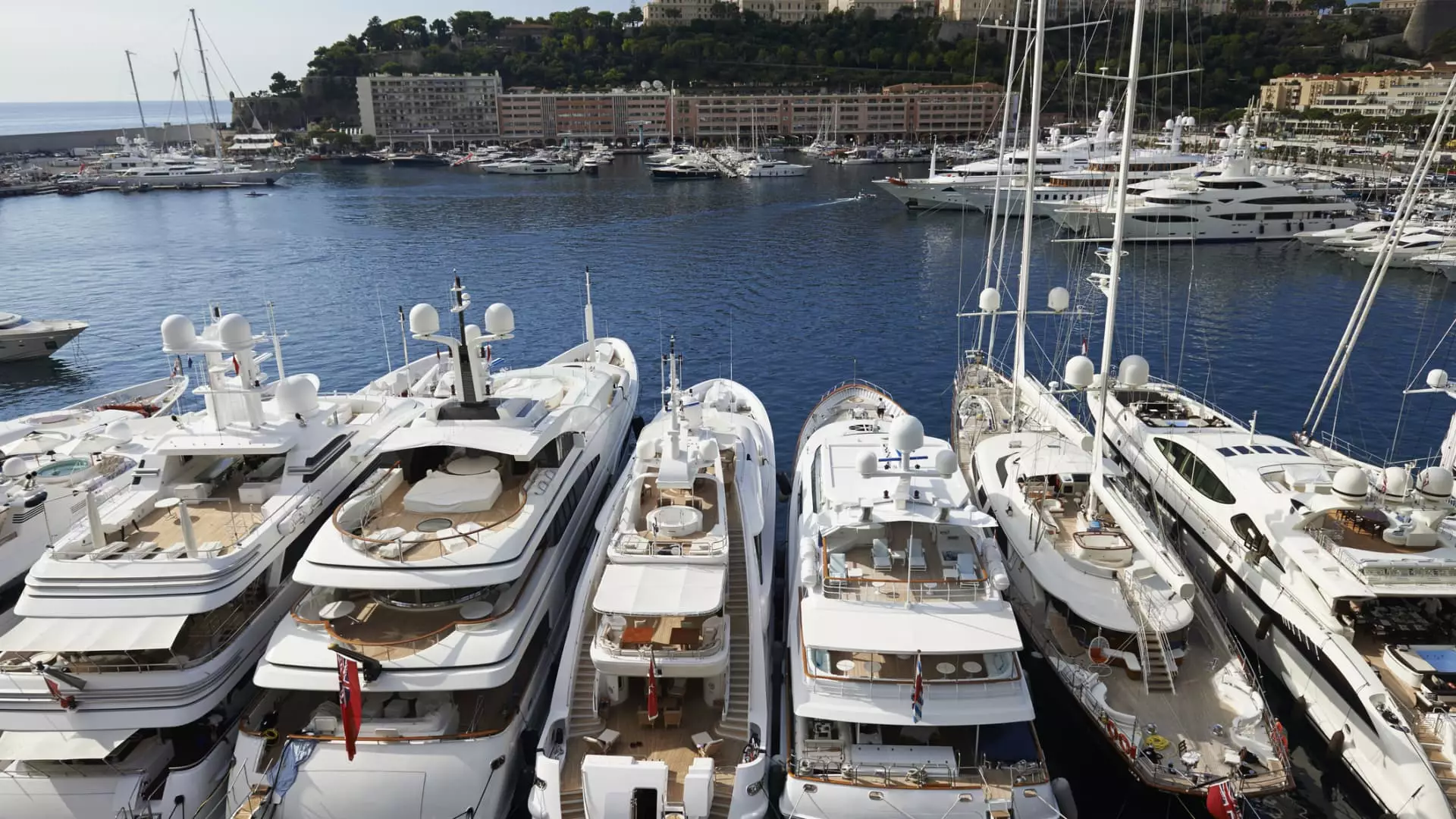The recent announcement of a 15% tariff on European-made yachts and recreational boats signals a seismic shift that will ripple through an already fragile industry. This move, orchestrated within the broader context of economic nationalism, reveals a shortsighted approach to international trade that disregards the complex interdependence between American consumers and European craftsmanship. For decades, European shipyards have been synonymous with luxury, precision, and timeless design—values that attract America’s wealthy elite. Now, with tariffs looming, the integrity of this symbiosis is under threat, and the industry stands at a crossroads of unprecedented uncertainty.
The immediate consequence is a distortion of market dynamics, where high-net-worth individuals, who previously prioritized quality and exclusivity, find themselves facing steeper prices. The tariff erodes value and disrupts longstanding buying patterns. Luxury yacht ownership is not just about status—it’s also an investment that often has significant logistical and legal considerations. Disrupting this delicate ecosystem introduces a level of volatility that could have long-term implications for both American buyers and European producers.
In essence, the tariffs threaten to polarize a historically fluid freight and luxury goods market into a segmented battleground: those who can afford to bypass the costs and those who cannot. While the wealthy may find ways to circumvent these tariffs—registering yachts in foreign jurisdictions, seeking special permits—the effort underscores a fundamental reality: tariffs do not simply increase costs; they threaten the fabric of cross-border luxury commerce, causing ripple effects that could stifle innovation, employment, and craftsmanship in the European yacht industry.
The Sophistication of Evasion and Its Long-Term Consequences
The tactics employed by affluent yacht buyers to dodge tariffs—such as foreign flagging—highlight a deeper issue: the resilience of the wealthy to economic barriers. Registering a yacht in jurisdictions like the Caymans or Malta costs thousands but can save millions in tariffs, making it an attractive loophole. However, this strategy exposes a broader dilemma: the growing disparity in how economic barriers impact different segments of society.
For the ultra-rich, these tariffs are merely an inconvenience that can be mitigated through legal and financial maneuvering. Yet, this adaptation strengthens the inequality gap, creating a dual-tiered class of yacht owners—those who can afford to move assets abroad and those who remain constrained by mounting costs. This divide risks distorting the market beyond the immediate economic harm, fostering a sense of unfairness that could erode public trust in fair trade practices and government policies.
Moreover, this evasion reflects an underlying failure of policymakers to consider the broader strategic implications of tariffs. While they are intended to bolster domestic industries, they often incentivize tax avoidance and smuggling, ultimately undermining the very economic sovereignty they aim to protect. Such strategies may temporarily shield individual buyers from costs, but they threaten to weaken the integrity and sustainability of the luxury yacht industry as a whole.
And what of smaller boats, those under 45 feet? These vessels often cannot be legally or financially maneuvered around tariffs with ease, making them more vulnerable to increased prices and reduced demand. This selective impact could reshape the landscape of yacht ownership, favoring the super-yacht segment at the expense of smaller vessels. The long-term consequence is a skewed market that favors the wealthiest, further entrenching inequality and undermining the broader goal of promoting equitable growth.
The Political and Economic Risks of a Divisive Trade Approach
The imposition of tariffs on European yachts underscores a broader, troubling trend—an erosion of global cooperation driven by protectionist ideologies. While proponents argue that such measures protect domestic manufacturing and preserve jobs, the reality is far more complex. The yacht industry, a shining example of globalization’s benefits, is now caught between conflicting interests.
Rather than fostering innovation and maintaining high standards, tariffs tend to foster retaliation, not only in the yacht market but across wider economic sectors. The potential for trade disputes to escalate could lead to a spiraling conflict that stifles international collaboration, crucial for high-tech, luxury, and artisanal industries alike. This antagonistic approach risks diminishing the United States’ standing as a hub of innovation and craftsmanship, especially when European yacht builders—renowned for their quality—are caught in the crossfire.
At a strategic level, tariffs threaten to create a more fragmented global market, where political motives override economic pragmatism. The wealthy elite, capable of navigating these barriers, may continue to enjoy luxury that is increasingly out of reach for the average American or European consumer. However, in the broader context, this imbalance fosters resentment and could lead to more aggressive protectionist policies, setting a dangerous precedent for future trade relations.
From a liberal center-wing perspective, these tariffs are a shortsighted knee-jerk response that ignore the interconnected nature of modern economies. They risk turning international trade into a zero-sum game instead of fostering innovation, mutual growth, and shared prosperity. In the end, these policies may do more harm than good, hampering economic development, discouraging diplomatic cooperation, and entrenching inequality—particularly as yacht ownership increasingly becomes a symbol of privilege rather than a testament to craftsmanship and design.
By closing avenues for legitimate trade and fostering covert evasion, these tariffs threaten to undermine the very ideals of a fair and free market—values that are essential for a resilient economy that benefits everyone, not just the privileged few.

